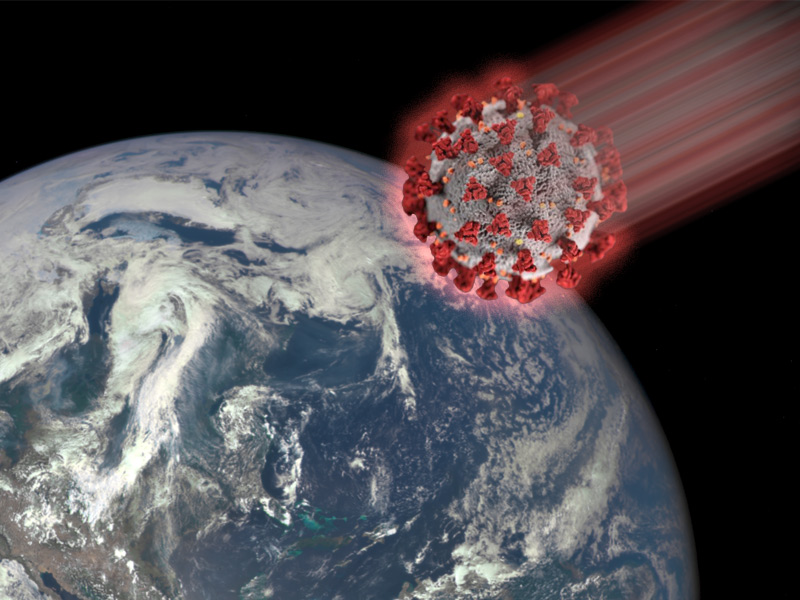-
Table of Contents
- Introduction
- What Can We Do to Prepare for a Possible Future Alien Encounter on Earth?
- Is It Possible That Earth Has Already Been Visited by Aliens in the Past?
- How Would Aliens View The Human Species?
- Could We Communicate with Aliens During a Visit?
- Would War be Necessary Against Aliens and Could We Win A War?
- Would We Share Earth With An Alien Species?
- What Are the Potential Health Risks of Interacting with Aliens?
- How Might Religion Respond to an Alien Visitation?
- How Would an Alien Visitation Impact Global Politics?
- Could We Learn Anything Useful from Aliens During a Visit?
- Conclusion
Introduction
The idea of alien visitation has been a source of fascination for centuries, and it is no surprise that people are curious about how such an event would affect life on Earth. If aliens were to visit our planet, the implications could be far-reaching and profound. From changes in technology to shifts in religious beliefs, there is much to consider when pondering the potential effects of extraterrestrial contact. In this article, we will explore some of the possible impacts that an alien visitation might have on humanity.
What Can We Do to Prepare for a Possible Future Alien Encounter on Earth?
As we look to the future, it is important to consider the possibility of an alien encounter on Earth. While this may seem like a far-fetched idea, there are some steps that can be taken now to prepare for such an event.
First and foremost, it is essential that we have a clear understanding of our own capabilities and limitations as humans. We must recognize our strengths and weaknesses in order to better understand how we might interact with any potential extraterrestrial visitors. This includes having a comprehensive knowledge of our current technology, scientific advancements, and cultural norms so that we can effectively communicate with aliens if necessary. Additionally, it would be beneficial to research other species’ communication methods in order to gain insight into their culture and behavior patterns.
Second, it is important for us to develop strategies for responding appropriately should an alien encounter occur on Earth. This could include creating protocols for contact between humans and aliens or establishing diplomatic relations with any extraterrestrial civilizations encountered during exploration missions outside of Earth’s atmosphere. It would also be wise to create contingency plans in case things do not go according to plan during initial contact or negotiations with aliens; these plans should include ways of de-escalating potentially hostile situations while still protecting human interests at all times.

Finally, it is critical that humanity remains open-minded when considering the possibility of encountering intelligent life from another world someday soon—or even further down the line—and remain prepared for whatever outcome may arise from such an experience. By taking proactive measures now rather than waiting until after first contact has been made, we will ensure that humanity is ready no matter what happens when (or if) aliens arrive on Earth one day in the future!
Is It Possible That Earth Has Already Been Visited by Aliens in the Past?
It is possible that Earth has already been visited by aliens in the past, but there is no concrete evidence to support this claim. While some people point to ancient artwork and artifacts as proof of extraterrestrial contact, these interpretations are highly speculative and lack any scientific basis. Furthermore, many of the supposed sightings or encounters with aliens have been debunked as hoaxes or misidentifications of natural phenomena. Therefore, while it cannot be definitively ruled out that Earth has had alien visitors in its history, it seems unlikely given the lack of reliable evidence for such an occurrence.
How Would Aliens View The Human Species?
If aliens were to view the human species, they would likely be skeptical of our capabilities. After all, we are a species that has been known to fight amongst ourselves and cause destruction on our own planet. We have also caused irreparable damage to the environment and continue to do so despite knowing better. Our technology is impressive in some ways, but it can also be used for destructive purposes. In comparison with other species on Earth, humans appear to lack empathy and compassion for others outside of their own kind. This could lead an alien observer to question whether or not humanity is truly capable of living peacefully with one another and coexisting harmoniously with nature.
Could We Communicate with Aliens During a Visit?
It is often speculated that if aliens were to visit Earth, we would be able to communicate with them. However, this assumption may not necessarily be true. While it is possible that the alien species could have a language similar enough to our own for us to understand each other, there are many factors which could prevent successful communication between two vastly different species.
For example, even if both species had a common language or shared some form of written communication, the differences in physiology and anatomy might make verbal communication impossible. The alien’s vocal cords may produce sounds too high-pitched or low-pitched for humans to hear; their mouths may not be capable of forming human words; and they may lack the ability to interpret facial expressions or body language. Furthermore, any attempt at translation from one language into another can lead to misunderstandings due to cultural nuances and connotations being lost in translation.
In addition, even if we were able to establish basic communication with an alien visitor through sign language or writing on paper, it is unlikely that either side would gain much insight into each other’s culture without significant effort over time—and who knows how long an extraterrestrial visitor might stay? Therefore while it is theoretically possible for us humans and aliens from outer space could communicate during a visit here on Earth—it remains highly uncertain whether such conversations would actually yield meaningful results.
Would War be Necessary Against Aliens and Could We Win A War?
When considering the possibility of war against aliens, it is important to consider whether such a conflict would be necessary and if we could win. On one hand, some may argue that war with aliens would be unavoidable due to their potential threat to humanity. After all, if they are advanced enough to travel across galaxies then surely they must have weapons far more powerful than our own. On the other hand, others might suggest that war should only be used as a last resort and that diplomacy should always be attempted first in order to avoid unnecessary bloodshed.
Ultimately, it is impossible for us to know what kind of technology or weaponry an alien species may possess until we actually encounter them. Therefore, any speculation about our chances of winning a hypothetical war against aliens is purely speculative at this point in time. What’s more, even if we were able to defeat them militarily there is no guarantee that peace between us would remain long-term given the vast differences between our two civilizations. As such, it seems prudent for us not rush into any decisions regarding warfare with extraterrestrial beings without careful consideration of all possible outcomes first.
Would We Share Earth With An Alien Species?
Would we share Earth with an alien species? It’s a question that has been asked for decades and one that continues to spark debate. On the one hand, some argue that it could be beneficial to humanity if we were able to learn from another intelligent species. On the other hand, there are those who remain skeptical of such a prospect due to potential risks associated with introducing an unknown entity into our world.
The idea of sharing Earth with aliens is certainly intriguing; however, it is important to consider all possible outcomes before making any decisions. For example, what would happen if their culture or values clashed with ours? Would they bring new diseases or technologies that could potentially harm us? Could they even pose a threat to our way of life? These are just some of the questions we must ask ourselves before considering whether or not this type of arrangement would be wise.
Ultimately, while there may be benefits associated with living alongside an alien species, it is difficult to predict how things might turn out in reality. Until more research can be done on this topic and its implications fully understood, many will likely remain skeptical about the possibility of coexisting peacefully with extraterrestrial beings on our planet.
What Are the Potential Health Risks of Interacting with Aliens?
Interacting with aliens could potentially pose a number of health risks to humans. While the exact nature and extent of these risks is unknown, it is possible that they could be severe. For example, contact with alien species may expose us to new pathogens or diseases for which we have no immunity or treatment. Additionally, there is the possibility that our bodies may not be able to process certain substances found in alien environments, leading to adverse reactions such as allergic reactions or even poisoning.
Similar to the risks of interacting with aliens, coming into contact with certain animals can pose health risks to humans. For example, badgers have been known to carry tuberculosis (TB), which can be transmitted to humans through close contact or consumption of unpasteurized dairy products from infected animals. This disease can be severe, with symptoms including fatigue, fever, and coughing, and can be fatal if left untreated.
Other animals that can potentially be hazardous for humans to interact with include bats, which can carry the deadly Nipah virus, and rodents, which can carry hantavirus. Contact with these animals or their bodily fluids can lead to serious illness or even death.
Furthermore, if an alien species has evolved differently than humans, their physiology and biochemistry may be incompatible with ours; this could lead to serious medical complications if we were exposed to them directly. Finally, any interaction between two different species carries the risk of introducing invasive organisms into our environment which can disrupt ecosystems and cause long-term damage.
Given all these potential risks associated with interacting with aliens, it is important for us to proceed cautiously when considering any kind of contact with extraterrestrial life forms. We must ensure that any interactions are carefully monitored and controlled so as not to put ourselves at unnecessary risk from exposure or contamination by unfamiliar organisms or substances.
How Might Religion Respond to an Alien Visitation?
Religion has long been a source of comfort and guidance for many people, so it is no surprise that the prospect of an alien visitation would be met with both excitement and trepidation. On one hand, some religious adherents may view such an event as a sign from God or another higher power, while others may see it as a challenge to their faith. In either case, religion could respond in several ways depending on its particular beliefs and traditions.
For example, some religions might interpret an alien visitation as evidence of divine intervention or even the coming of a messiah figure. This could lead to increased devotion among believers who are eager to learn more about this new being or phenomenon. Other faiths might take a more skeptical approach by questioning whether these visitors truly have supernatural powers or if they are simply advanced beings from another world. They may also use scripture to explain away any potential conflicts between their beliefs and what the aliens have said or done during their visit.
The mass suicide UFO religion is a well-known example of how religion can respond to the prospect of an alien visitation. This religion, also known as Heaven’s Gate, believed that a UFO trailing the Hale-Bopp comet would take them to a higher level of existence. In 1997, 39 members of the group committed mass suicide in order to join the supposed alien craft.
The Heaven’s Gate incident shows how religious beliefs can sometimes become distorted in the face of new and unfamiliar phenomena, especially when combined with charismatic leadership and a strong belief in the afterlife. In this case, the group’s belief in an alien visitation led them to take extreme actions that ultimately resulted in tragedy.
While this is an extreme example, it highlights the potential for religion to respond in unpredictable ways to an alien visitation. Depending on the particular beliefs and traditions of a religion, it could respond with anything from increased devotion to skepticism to outright rejection. As with any major event, it is important for religious communities to carefully consider the implications of an alien visitation and ensure that their responses are grounded in reason and compassion.
Ultimately, how religion responds to an alien visitation will depend largely on its individual teachings and interpretations of events like this one. Some faiths may embrace the opportunity for growth while others remain cautious until further information is available; regardless, all should strive to maintain open minds when considering such extraordinary occurrences in order to ensure that everyone’s spiritual needs are respected and honored equally.
How Would an Alien Visitation Impact Global Politics?
The potential impact of an alien visitation on global politics is a highly contested and complex issue. On one hand, some argue that such an event could bring the world together in a spirit of unity and cooperation, as nations would be forced to put aside their differences in order to confront this new challenge. On the other hand, skeptics point out that it is just as likely that an alien visitation could lead to increased tensions between countries due to competition for resources or fear of invasion. Ultimately, it is impossible to predict how exactly global politics would be affected by an extraterrestrial encounter until it actually happens.
One thing we can say with certainty is that any kind of contact with aliens would have far-reaching implications for international relations. For example, if the aliens were perceived as hostile or dangerous then governments might feel compelled to form alliances against them or even declare war on them—a situation which could easily escalate into a full-scale conflict between multiple nations. Alternatively, if the aliens were seen as benevolent then they may offer assistance and technology which could drastically alter existing power dynamics among countries; those who are able to access these resources first may gain significant advantages over their rivals while those left behind may become increasingly resentful and isolated from the rest of the world.
In addition, there are also ethical considerations surrounding how different cultures should respond when faced with something so fundamentally foreign and unknown—questions about whether humans should attempt diplomatic negotiations with non-human species or simply try to defend themselves against potential threats without engaging in dialogue at all. These kinds of debates will undoubtedly shape future policies regarding extraterrestrial encounters regardless of what form they take when (or if) they occur.
Ultimately, while no one can know for sure what effect an alien visitation would have on global politics until it actually happens, we can assume that its consequences will be both profound and unpredictable—and potentially very dangerous depending on how humanity chooses to react towards this unprecedented event
Could We Learn Anything Useful from Aliens During a Visit?
If aliens were to visit us, could we learn anything useful from them? While it is tempting to imagine that an alien species would possess knowledge far beyond our own, the reality may be more complicated. After all, any advanced civilization must have faced similar challenges as humanity and thus their solutions might not be so different from ours. Furthermore, even if they did have access to technologies or ideas that are completely foreign to us, it is unclear how much of this information could actually be understood and applied by humans.
In short, while a visit from extraterrestrial beings could certainly provide some interesting insights into the universe around us, it is unlikely that we would gain any truly revolutionary knowledge or technology from such an encounter.
Conclusion
An alien visitation would have a profound effect on people on Earth. It could bring about feelings of fear, awe, and wonder as well as the potential for new technologies and knowledge. People may also be inspired to think more deeply about their place in the universe and how they can work together to make our planet a better place. Ultimately, an alien visitation would likely cause us to re-examine our beliefs and values while inspiring us to reach out beyond our own world.



“…it seems unlikely given the lack of reliable evidence for such an occurrence.”
There have been things found in China and the Grand Canyon that point to ET habitation here in the past, not to mention the pyramids.
Phenomenal discussion. I would like to join a group of people focused on having a realistic, informed and reasonable exploration of this serious issue on the same level of analysis as this article.